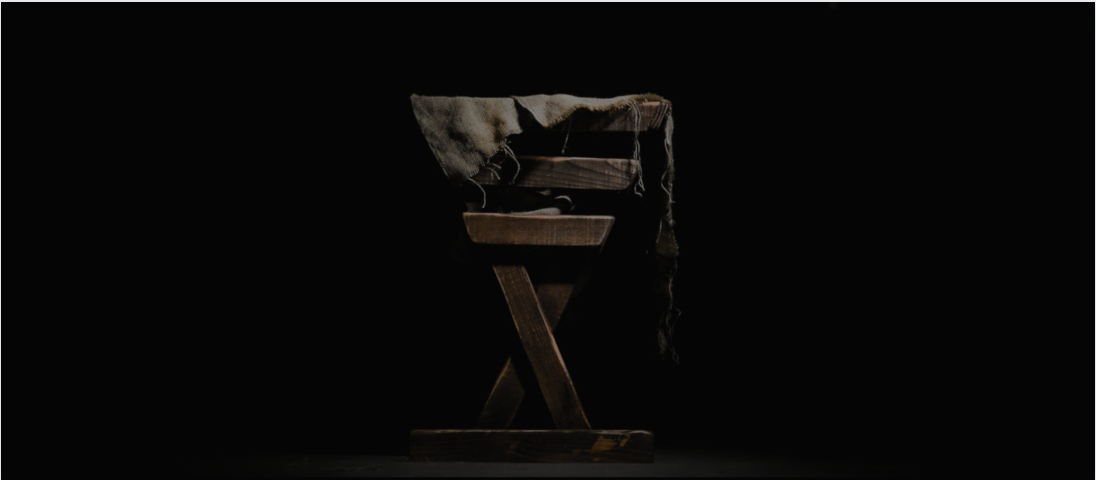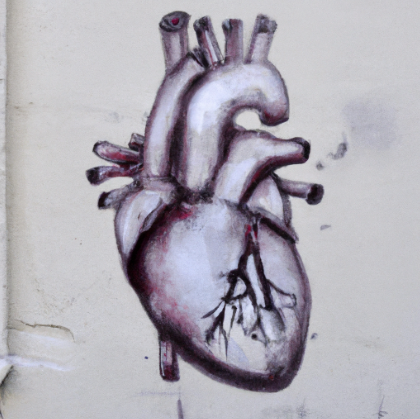The Transformed Nonconformist and the Birth of a Revolution
Article written by Bryan Ward
Revolutionary Christmas
Christmas is nothing short of revolutionary. The term "revolutionary" refers to something characterized by or relating to a significant, radical, or fundamental change. The revolutionary essence of the incarnation of Jesus lies in its profound impact on Christian beliefs about the very nature of God, the purpose of human existence, and the possibility of reconciliation and salvation for humanity through the divine-human union in Jesus.
Then there was the revolutionary way in which Jesus came into the world. He did not arrive in the way most people imagined, but rather in humility and simplicity. Jesus was born in an out-of-the-way town, in a manger, a host of angels appearing to common shepherds in the fields with the message of peace and goodwill. Incredible for sure, but not the triumphant and majestic arrival people expected.
Likewise, Jesus invites us to this revolutionary life, and calls us to radical nonconformity. We are called to participate in God’s work of restoration and reconciliation, which are at the heart of his commands to love our enemies, turn the other cheek, forgive 70 x 7, give “hilariously,” love justice, and live compassionately. We are to share his love for the poor and marginalized, living a life marked by humility and servanthood. We are called to love God with our whole being, and our neighbor as ourselves. But how? How do we live this beautifully radical life that Jesus calls us to?
“Do not conform to the pattern of this world but be transformed by the renewing of your mind. Then you will be able to test and approve what God’s will is – his good, pleasing, and perfect will.”
The Christian faith is fundamentally a nonconformist worldview. This is especially true regarding cultural values and social norms that alienate people from God and one another. We see the beauty of a nonconformist worldview in the early church, who were, according to Rev. Dr. Martin Luther King Jr., “nonconformists in the truest sense of the word.” They lived in such a counter-cultural way that people took notice. We see evidence of this in letters written about the early church, like this excerpt from Aristides’ letter to Caesar Hadrian:
“Falsehood is not found among them; and they love one another, and from widows they do not turn away their esteem; and they deliver the orphan from him who treats him harshly. And he, who has, gives to him who has not, without boasting. And when they see a stranger, they take him in to their homes and rejoice over him as a very brother; for they do not call them brethren after the flesh, but brethren after the spirit and in God. And whenever one of their poor passes from the world, each one of them according to his ability gives heed to him and carefully sees to his burial. And if they hear that one of their number is imprisoned or afflicted on account of the name of their Messiah, all of them anxiously minister to his necessity, and if it is possible to redeem him they set him free. And if there is among them any that is poor and needy, and if they have no spare food, they fast two or three days in order to supply to the needy their lack of food.”
Thermometer or Thermostat?
“Do not conform” is difficult advice in a generation when crowd pressures have unconsciously conditioned our minds and feet to move to the rhythmic drumbeat of the status quo.”
- Rev. Dr. Martin Luther King Jr.
In Romans 12, Paul encourages Christ-followers to faithfully follow Jesus in their context by critically examining their cultural values in light of Gospel values. As it turns out, this is harder than we initially think. In his sermon titled “Transformed Nonconformist,” Dr. King says,
“…most people, and Christians in particular, are thermometers that record or register the temperature of majority opinion, not thermostats that transform and regulate the temperature of society.”
Paul knew that culture has the power to create desire for conformity. We all like to fit in and get along with others, but that desire can lead to an uncritical acceptance of worldview, lifestyle, values, and systems that don’t always align with the Kingdom of God. As the Church, we are called to point the way, as a light on a hill, to this revolutionary vision of Jesus, where good news is proclaimed to the poor, freedom for the prisoners, recovery of sight for the blind, the oppressed are set free, and the year of Jubilee is practiced (Luke 4:14-21).
The Transformed Nonconformist
“Nonconformity is creative when it is controlled and directed by a transformed life…Only through an inner spiritual transformation do we gain the strength to fight vigorously the evils of the world in a humble and loving spirit.”
Not conforming to the world is not enough. In his sermon, “Transformed Nonconformist,” Dr. King refers to “untransformed” nonconformists as hardhearted, self-righteous, rigid, and impatient. An untransformed life can cause one to live from a place of fear, hurt, anger, or bitterness.
The opening of our lives to God, the deepening of our inner life with God, and revolutionizing our values and worldview are essential if we are to engage the world in the way of Jesus. This raises the question of how we might experience this inner transformation. I would like to suggest two foundational practices for inner transformation: contemplative/reflective prayer and active engagement in the mission of God in the world.
Inner Transformation is Key
Contemplative prayer is a form of Christian prayer that focuses on cultivating a deep, reflective awareness of God's presence.
Unlike other forms of prayer that may involve vocal expression or specific requests, contemplative prayer is more about silent receptivity and an intimate communion with God. Several important things happen in contemplative prayer. First of all, and perhaps most importantly, contemplative prayer can radically alter our experience of God’s love. It is one thing to say that God loves us, and quite a different thing to experientially know that we are His beloved.
When we begin to understand this truth at the core of our being, it revolutionizes our lives and the way we relate to ourselves and others.
Contemplative prayer also creates self-awareness as we allow God to examine our hearts. It exposes our disordered attachments, things that hold an unhealthy sway over our lives. Disordered attachments can include “negative” things like fear, hard-heartedness, anxiety, bitterness, and the like, but they can also include things we typically see as “good.” Honor, respect, affirmation, control, and security are not bad in and of themselves. However, if our attitudes and actions are determined by whether or not we receive these things, then we may have an unhealthy attachment to them. It is in this place of intimacy with God that we become aware of such attachments and become “detached,” or freed, from their power over us.
In such an environment of love and intimacy with God, the wounds of our lives are healed. We all have wounds from our past, and these things often affect the way we see ourselves, the way we treat others, and the way we engage in daily life. The old adage that “wounded people wound people, and healed people heal people” rings true. If we are to live as a healing presence in the broken places of our world, then it is imperative that we are also being healed. There is no better place for this to happen than in the presence of our Creator who calls us beloved.
Transformed for the Benefit of the World
All of these things, belovedness, detachment, and healing, are not just for our benefit, but for the benefit of the world. They deeply affect how we see ourselves and others, and they are key to how we live in the world. God is busy reconciling and restoring all things to himself, and he is calling us to join him from a place of deep love, free from our own agendas, and with a heart for the flourishing of all people.
This Christmas, as we reflect on the birth, life, and love of Emmanuel, let us consider how we might live as transformed nonconformists. It is here, in this love relationship with Jesus, that we find the guidance and strength to carry on the revolution that began with his birth.
Character of a Change Agent
“Transformed Nonconformist” is one of nine character traits discussed in ReWire’s Character of a Change Agent course. Through the lens of the life, ministry, and social action of Dr. Martin Luther King, Jr., Character of a Change Agent offers a unique perspective on spiritual formation, character building, and unity between inward spiritual discipline and the outward work of social change.
We offer Character of a Change Agent periodically throughout the year, in rotation with our other ReWireU courses. Click the button below to learn more about this class and submit your contact information to receive updates about when this course is being offered again!





